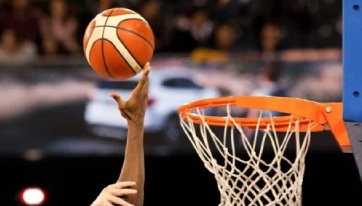Congress Reexamines Gambling Oversight
A widening gambling scandal tied to the NBA has reignited debate in Washington over how — and whether — to tighten the rules governing America’s booming sports betting industry. The controversy, which surfaced after a series of FBI arrests connected to an illegal betting ring, has prompted renewed calls for federal crackdowns and restrictions on player-specific proposition bets, or “prop bets.”
While the episode has spurred a handful of lawmakers to demand greater oversight and more information from NBA Commissioner Adam Silver, Congress remains largely inactive. Since the Supreme Court struck down the Professional and Amateur Sports Protection Act (PASPA) in 2018 — opening the door for states to legalize sports wagering — federal discussions have largely stalled.
A December hearing before the Senate Judiciary Committee marked the last major instance of congressional scrutiny. Its chair, Senator Dick Durbin (D-Ill.), suggested at the time that it would not be the end of the conversation. But nearly a year later, no follow-up hearing has been scheduled.
| Issue | Federal Status | State Action | Regulators |
|---|---|---|---|
| NBA gambling scandal & FBI arrests | Renewed calls for SAFE Bet / federal oversight; bills stalled in committee | 39 states legal; mixed responses — some tax increases, few legislative bans | State gaming commissions active (e.g., MA, OH); some bans on college prop bets |
States Chart Their Own Course — Cautiously
Seven years after PASPA’s fall, 39 states have legalized some form of sports betting. Yet as the industry matures, most state legislatures have opted for a light-touch approach, allowing regulators rather than lawmakers to make adjustments as issues arise. Some proposals to restrict betting have failed to gain traction. In Maryland, a 2025 bill that would have repealed online sports betting outright never received a hearing. A similar proposal in Vermont also stalled. In Connecticut, efforts to cap sportsbook profits and give consumers the ability to hide certain wager types also failed to advance.
When legislatures do act, their moves often focus on fiscal rather than ethical concerns. Several states, including Illinois, Ohio, Louisiana, and Maryland, have recently raised tax rates on sportsbooks to bolster public revenues. Illinois now imposes a tiered tax of 20% to 40% on sportsbook income, up from a flat 15% when betting first launched.
While lawmakers have largely hesitated, state gaming regulators have taken the lead in shaping the evolving market. Agencies such as the Massachusetts Gaming Commission and the Ohio Casino Control Commission have tightened oversight, enforcing advertising rules and monitoring betting integrity more closely. Prop bets — wagers on specific player performances rather than game outcomes — have become a particular focus. Several state regulators, including those in Ohio, Maryland, and Louisiana, banned collegiate prop bets in 2024 following concerns about threats to amateur athletes and game integrity.
Federal Proposals Remain Stalled
On Capitol Hill, the most comprehensive sports betting proposal is the Supporting Affordability and Fairness with Every Bet (SAFE Bet) Act, co-sponsored by Senator Richard Blumenthal (D-Conn.) and Representative Paul Tonko (D-N.Y.). The bill, which has been reintroduced in successive sessions, calls for national standards on advertising, limits on certain bet types, and restrictions on artificial intelligence in targeting bettors. Under the proposal, ads for sports betting would be prohibited between 8 a.m. and 10 p.m., and terms such as “risk-free” and “bonus” would be banned. It would also prohibit collegiate player prop bets and certain in-play wagers.
“The government at every level has failed to pay attention to the impact of gambling-related harms,” Tonko said in March when he reintroduced the bill. “This isn’t about stopping Americans from betting — it’s about protecting them from predatory practices.” Despite those aims, neither chamber has scheduled a hearing on the legislation. Both versions remain bottled up in committee.
Prop Bets at the Center of Reform Debate
The recent NBA-linked gambling arrests have intensified scrutiny of prop bets, particularly those involving college athletes. NCAA President Charlie Baker has been among the loudest advocates for a nationwide collegiate prop bet ban, arguing that such wagers create opportunities for manipulation and compromise the integrity of games.
Representative Michael Baumgartner (R-Wash.) introduced legislation earlier this year to prohibit college-level prop bets but allow them for professional sports. Several states, including North Carolina and New Jersey, have floated similar restrictions, though few have gained traction. Ironically, regulators and legal sportsbooks played a key role in detecting the suspicious betting activity that led to the latest scandal — evidence, industry advocates argue, that a regulated market is essential for transparency.
Tonko has been one of Congress’s most vocal critics of sports betting’s expansion, having previously proposed the Betting on Our Future Act in 2023 to ban sports wagering ads entirely under Federal Communications Commission rules — similar to the advertising restrictions on cigarettes. That proposal also languished in committee.
Blumenthal, meanwhile, has pushed the Gambling Addiction Recovery, Investment and Treatment (GRIT) Act, which would channel the federal sports betting excise tax — 0.25% of all wagers — into funding addiction research and treatment. But others, including Rep. Dina Titus (D-Nev.), have called for repealing that same tax, arguing it disadvantages legal operators and benefits offshore sites. Since 2018, sportsbooks have paid more than $500 million in excise taxes.
This isn’t about stopping Americans from betting—it’s about ensuring the industry operates under rules that protect integrity, consumers, and public trust.
A Fragmented Future
The latest scandal underscores the fragmented nature of U.S. sports betting regulation. Federal lawmakers are divided, state legislatures remain cautious, and regulators are left to adapt to new issues as they arise.
Whether Congress acts in response to the NBA case remains uncertain. For now, the center of gravity remains at the state level — where regulators, not legislators, continue to shape the most dynamic and controversial sector of American gambling.








